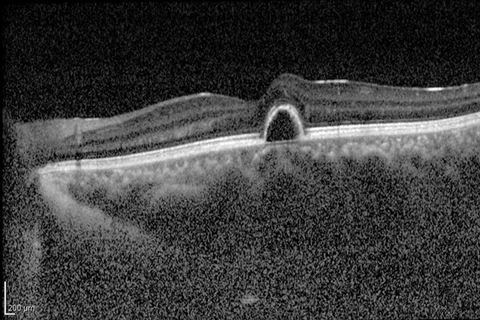Macular Pucker
Understanding Macular Pucker: Your Guide to Eye Health
Welcome to Peak Retina, your trusted destination for comprehensive eye care. We are committed to providing you with the knowledge you need to make informed decisions about your eye health. In this informative guide, we will explore a common condition known as “Macular Pucker,” also called epiretinal membrane or cellophane maculopathy. We will discuss what it is, its causes, symptoms, and available treatment options.
What is Macular Pucker?

Macular pucker is a condition that affects the macula, a small but crucial part of your retina responsible for central vision. The macula allows you to see fine details, read, recognize faces, and perform tasks that require sharp vision. When the macula becomes distorted or wrinkled due to the formation of a thin, translucent layer of scar tissue on its surface, it is referred to as macular pucker.
What Causes Macular Pucker?
The most common cause of macular pucker is the aging process, as the vitreous gel inside your eye shrinks and pulls away from the retina. This natural occurrence can sometimes lead to the formation of scar tissue on the macula. Other potential causes and risk factors for macular pucker include:
- Eye Surgery or Injury: Previous eye surgery or trauma can increase the likelihood of developing macular pucker.
- Retinal Detachment: If you’ve had a retinal detachment in the past, it can increase your risk of macular pucker.
- Diabetic Retinopathy: People with diabetes are at a higher risk of developing various eye conditions, including macular pucker.
Symptoms of Macular Pucker
Macular pucker often presents with mild to moderate symptoms, which may include:
- Blurry or distorted central vision
- Wavy or bent lines when viewing straight objects
- Difficulty reading or recognizing faces
- Decreased color perception
It’s important to note that macular pucker typically affects only one eye, leaving the other eye with normal vision.
Diagnosis and Treatment
Diagnosing macular pucker involves a comprehensive eye examination, including the use of special imaging techniques like optical coherence tomography (OCT) to visualize the macula and assess the severity of the condition.
Treatment for macular pucker is not always necessary, especially if the symptoms are mild and do not significantly impact your daily life. However, if your vision is severely affected, your eye care specialist may recommend surgery to remove the scar tissue. The surgical procedure, known as vitrectomy with membrane peel, involves removing the scar tissue from the macula to improve central vision. This procedure is highly effective in restoring visual acuity for many patients.
FAQs about Macular Pucker
1. Can macular pucker be prevented?
- Macular pucker is often related to the aging process, and its development cannot be entirely prevented. However, leading a healthy lifestyle, protecting your eyes from injuries, and managing underlying conditions like diabetes can reduce your risk.
2. Is macular pucker the same as macular degeneration?
- No, macular pucker is a different condition from macular degeneration. Macular degeneration (age-related macular degeneration or AMD) is characterized by the breakdown or damage to the macula over time, while macular pucker involves the formation of scar tissue on the macula.
3. Is surgery the only treatment option for macular pucker?
- Surgery is typically recommended when macular pucker significantly affects your vision. In mild cases, regular monitoring and management of underlying conditions may be sufficient.
4. Is macular pucker a common condition?
- Macular pucker is relatively common, particularly in older individuals. However, not everyone with risk factors will develop the condition, and its severity can vary widely.
Conclusion
At Peak Retina, our dedicated team of eye care specialists is here to provide you with expert guidance and treatment options for macular pucker and other retinal conditions. Your vision is our priority, and we are committed to helping you maintain optimal eye health. If you have concerns about macular pucker or any other eye-related issues, please don’t hesitate to reach out to us. We are here to support you on your journey to better vision.

